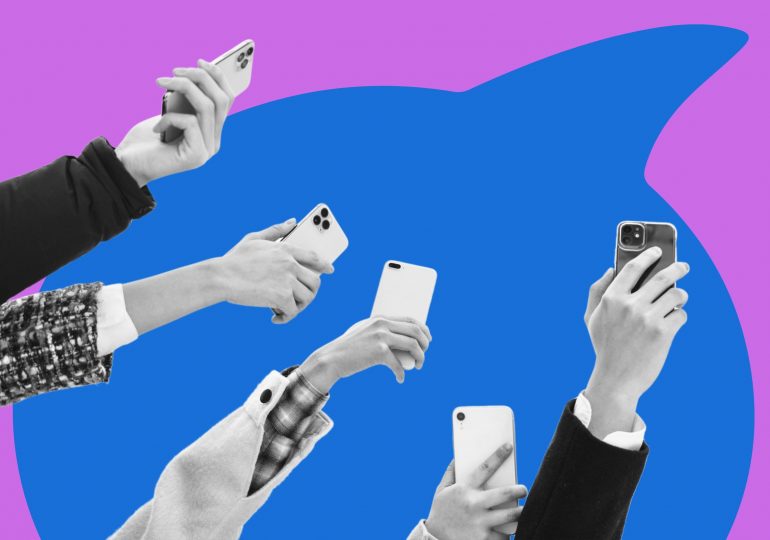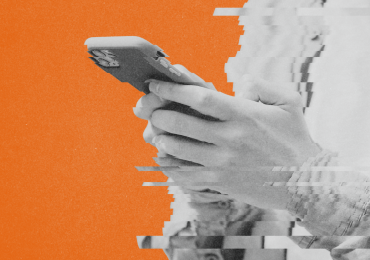Trying to talk to someone stuck on their phone is such a universal experience, there’s a name for it: “phubbing,” short for “phone snubbing,” or ignoring someone in favor of a phone. “Everyone hates it, but everyone has also done it,” says Jean Twenge, a professor of psychology at San Diego State University and author of the upcoming book 10 Rules for Raising Kids in a High-Tech World. “When someone phubs you, you feel like you’re not important—that whatever is on their phone is more important than you.”
[time-brightcove not-tgx=”true”]
Phubbing negatively affects mental health, relationship satisfaction, and overall well-being. That’s why it’s worth speaking up about digital distraction. “It’s challenging and awkward, but we should be doing this,” Twenge says. “We need to be confronting this situation.”
Here’s exactly what to say when the person you’re trying to talk to won’t get off their phone.
“I’ve got a group chat that’s blowing up right now, but I’d rather talk to you without getting distracted. Can we put our phones away in our bags?”
A couple years ago, Twenge heard about a group of women who pushed their phones into the center of the table when they went out to dinner. The first person to reach for her device had to foot the bill. That’s a clever approach, Twenge says, but you don’t even need to put a financial spin on it: Instead, propose you all drop your phones somewhere out of sight, like in your bags.
Read More: What to Say When You Forget Someone’s Name
Twenge likes this phrasing because it isn’t accusatory: “It’s a subtle way to get across the message of, ‘Hey, we all have stuff going on on our phones, but I want to talk to you right now,’” she says. “It’s a very polite way of saying, ‘I want us to focus on this conversation.’”
“Is everything OK?”
This question allows for the possibility that there’s an emergency—while implying that, if there’s not, it would be better to put the phone down. It might feel slightly confrontational, Twenge says, but it’s better than snapping at the other person to get off their device. “You have to find a way to thread that needle of acknowledging that there might be something important going on,” she says. “But it is a call out.”
“Anything interesting on there you can share with me?”
This is a way to get someone talking about what’s on their phone—and, as a result, to look up from said device. Do people typically share, or simply take it as a reminder to be more present? “I’ve seen it go both ways,” Twenge says. “Sometimes it’s just a text exchange with someone else, but every once in a while, it’ll be like, ‘Look at this really funny video,’ or ‘Here’s this fun picture somebody sent me.’ Either way, the idea is to draw them back into the in-person conversation.”
“Is now a good time to talk, or should I come back when you’re done?”
This approach is direct but still respectful. It calls attention to the fact that the other person is clearly distracted, without demanding anything from them, says Tessa Stuckey, a therapist and founder of Project LookUp, a nonprofit that helps families build healthier screen habits. “It gives them autonomy, while also honoring your own needs,” she says. She’s found that making her conversation partner aware that she’s noticed they’re not fully present is often all it takes to prompt a reset.
Read More: How to Reconnect With People You Care About
“I miss you when you’re on your phone.”
Telling someone you miss them comes from a place of vulnerability, not blame—and Stuckey likes that it’s almost guaranteed to tug on your friend’s heartstrings. “You’re expressing that the phone is creating distance, and that you want connection,” she says. Plus, it invites empathy: Most people don’t realize how their screen use is affecting others until it’s pointed out gently. The trick, Stuckey adds, is to say it warmly, with sincerity, so it feels like an emotional nudge rather than a guilt trip.
“Can we take a 10-minute phone break? I really want to catch up.”
Asking someone to put their phone away for such a short amount of time is realistic—it’s a very doable break, Stuckey says. You’re not asking them to disconnect forever; rather, you’re inviting a shared moment. “People are more likely to unplug when there’s a clear time boundary and a good reason,” she says. Plus, it’s collaborative, almost like you’re proposing a team challenge.
Read More: The Worst Way to Reply to a Party Invite
“Hey friend, let’s reconnect.”
Seven years ago, when Seán Killingsworth was in high school, he struggled with excessive screen time so much, he traded his smartphone for a flip phone. It worked—he felt happier and more present—but his peers were still glued to their phones, so he took things a step further and started Reconnect, a group that now hosts phone-free events on college campuses throughout the U.S.
Ideally, more opportunities for phone-free socializing would exist. But in lieu of formal options, Killingsworth recommends bringing up the concept to your friends: “We should try hanging out without our phones sometime.” Talk through why being present with each other matters. Then, the next time you notice your buddies are more focused on Facebook than your face, issue a gentle reminder.
“These moments with you really matter to me.”
If you’re at dinner with friends, or are spending quality time with a family member you don’t get to see often, consider calling attention to the significance of the moment. You could even follow up by adding: “I’d hate to look back and feel like we missed out because of our screens,” suggests Dr. James Sherer, a psychiatrist who treats addiction and co-editor of the Technological Addictions textbook for the American Psychiatric Association. “It can be very powerful,” he says, and lead to meaningful improvements in relationship quality.
Read More: How to Say ‘I Told You So’ in a More Effective Way
“I’ve noticed that when we’re together, you’re on TikTok quite frequently, and that makes me feel like I’m being ignored.”
Focusing on the way someone’s phone usage makes you feel can be more effective than “instigatory” comments, Sherer says. You’re not going to get very far by barking, “You’re always on TikTok! You don’t care about me!” Highlighting your own observations and how someone’s behavior makes you feel, however, plants a seed that can encourage them to reevaluate their habits. “The most important thing is to approach it from a position of being nonjudgmental,” he says. “You’re not there to dog pile on the person.”
“Muskrat!”
Stuckey’s son was 8 the Christmas morning when he noticed certain family members were paying more attention to their phones than watching him open his presents. He came up with an idea: The family could designate a silly code word they called out every time they wanted to signal it was time to drop the devices and be present in their surroundings.
More than five years later, the family still uses their word (“muskrat”). “What I love about it is my kids can call us out using that word,” Stuckey says. “We can call them out with that word. They’ve grown up with it. It makes people check themselves a little bit and say, ‘OK, I’ll put it down in a moment—I just have to finish this email really quick.’”
Wondering what to say in a tricky social situation? Email timetotalk@time.com
Leave a comment





